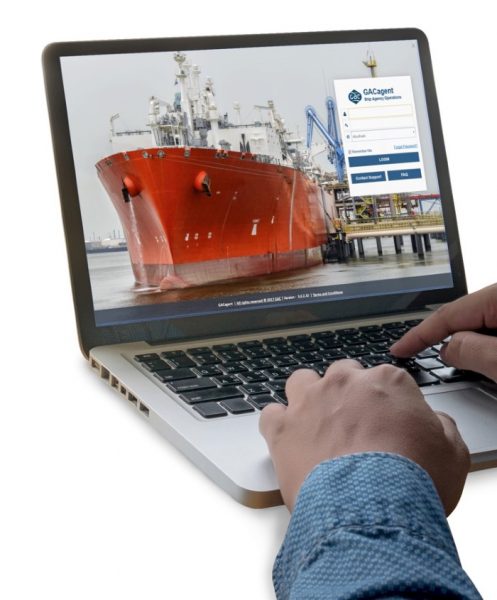Tapping into Digitalisation for Growth and Efficiency
23.08.2019The shipping industry is no stranger to challenges. Slow global demand, volatile trade patterns, pricing pressures and changing regulatory regimes have created a seismic shift in expectations – placing intense pressure on shipowners and operators to navigate today’s complex environment whilst keeping growth and profit margins afloat.
In order to thrive in the current competitive landscape and remain relevant, shipowners and operators cannot afford to be complacent. They must re-evaluate their current business models to adapt and survive the latest evolution of the market.
Digitalisation in shipping
Embracing big data and digitalisation offers a way to delivering greater commercial and operational efficiencies, and drive growth. DNV GL CEO, Knut Ørbeck-Nilssen, rightly points out that “everyone is looking for a competitive advantage and many see that moving, say inside the field of digitalisation, might give them a competitive advantage.”

The benefits to shipowners and operators are wide-ranging from improving ship performance, to monitoring health of vital machinery, managing operating cost and reducing the environmental footprint of ships – generating additional value in the form of greater efficiency and enhanced productivity.
Despite the well-lauded benefits of digitalisation, adoption in shipping has been slow when compared to other industries.
However, there are indications that this is starting to turn around as more within the sector embrace the possibilities of digitalisation and new technologies.
Industry giants are leading the way. Shipping lines including as CMA CGM and Maersk have announced various initiatives and collaborations to drive the use of innovative technologies across their businesses. Similarly, key maritime hubs like Singapore and Denmark have laid out their respective roadmaps and visions to push ahead with digital transformation in the coming decade, recognising the key role of port authorities and the wider maritime community in helping to proliferate digitalisation.
Digitalisation as a key differentiating factor
It is clear to say that integrating digital strategies in the business will be the biggest differentiator between companies that succeed and companies that get left behind in the race for growth. As well as boosting the economic performance of their own operations, shipping companies can also reap the benefits of digital technologies when applied right across the maritime sector to create a more streamlined supply chain.
Customers today are clamouring for fast, efficient and seamless delivery services across supply chains. However, structured and siloed supply chains can slow the process significantly – resulting in lost revenue and time. Digitalisation allows
companies to shift away from uncoordinated efforts towards an integrated operating model – one that provides greater transparency, traceability and predictability.

Generating smart data
Increasingly, customers are turning to service providers like GAC to deliver added value along the supply chain.
With over 300 offices spanning over 50 countries, GAC collects an immense amount of data from its day-to-day operations. This data ranges from insights into purchasing decisions and trends, to more macroeconomic data surrounding the emergence of different trade routes as companies adapt to changing demand.
Leveraging this data, GAC provides tangible intelligence to customers on these emerging trends in the market – allowing customers to take more informed commercial decisions; for example, to calculate the cheapest port call locations, respond to import/export trends and identify new revenue streams and opportunities.
Using the value and power of data, GAC provides tailor-made solutions for the markets in which they operate.
GAC has invested considerable resources in creating a digital platform and has implemented processes to centralise some elements of the Group’s work to ensure global consistency. This includes creating a common glossary so that work is described and handled equally across the entire Group. It has also created new data governance rules mandating how GAC entities manage, share and gather insights from data.
Conclusion
It is evident that the digital revolution is redefining the shipping industry and is getting more fundamental in day-to-day business.
Adoption of digitalisation is key to survival in today’s challenging operating environment and presents unparalleled opportunities for the global maritime industry.
The time is now for shipping companies and owners to step up, embrace the change and define a clear digital plan as an integral part of their overall business strategy.
Source: Article By Martin Wallgren, Chief Information Officer, GAC Group, Arranged on Behalf of Hellenic Shipping News Worldwide.
Source : Hellenic Shipping News
